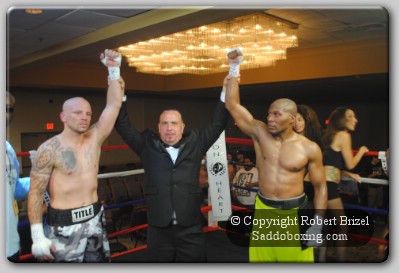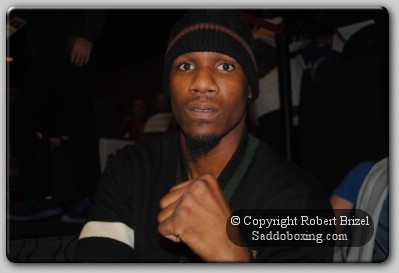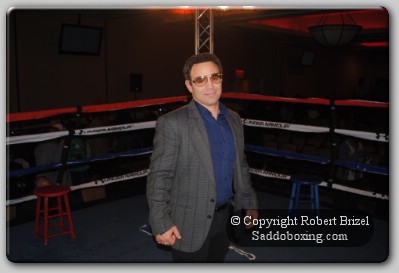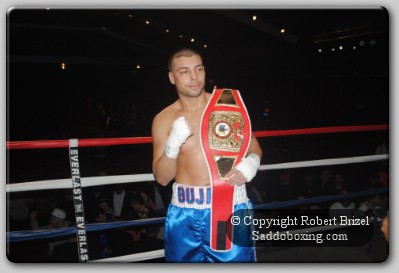Ed Levine, president of the IBO, has spoken out on the organisation’s pioneering world ranking system and other issues currently concerning boxing fans. The IBO is the only sanctioning body to offer an unbiased, computerised ranking of fighters, for which it has received much praise. However, critics have pointed to what they believe are politically motivated inconsistencies, such as the apparent irrelevance of the rankings when the IBO appoints champions or decides matches for vacant championships.
In a recent conversation with this writer, Ed Levine conceded that the IBO hasn’t clarified such issues as well as it might have done in the past. “You have to remember that the original idea was way out of the mainstream,” Levine says. “We went with computerised rankings to be as fair as we possibly could to all fighters, but computers can’t read circumstances like human beings. Such a system can never be perfect, which means that you have to constantly review it and make adjustments.
“We want the IBO champions to be the best in their class and we are confident we will get to that point. Gauging the quality of fighters is so important and an ongoing issue for us. The difference in quality between, say, the number one and number fifty contenders in each weight class may differ radically.
“When we first introduced the rankings, a fighter had to be in the top hundred to compete for our title. We then cut that to fifty and now the qualifying mark is thirty-five. Many would argue that is still too generous, but we conduct regular studies in order to ascertain the correct qualifying mark.
“In general, we have found that the top thirty five fighters are invariably world class. We will probably narrow the field to twenty, but I don’t see us going any further than that.
“Computers can’t read bad decisions or close decisions. If the first ranked contender gets a disputed split decision over the fighter ranked twentieth, does that merit a difference of nineteen places between them in the rankings? Once you begin to get to the top of the rankings, a great many fighters are bunched together in terms of quality. We see evidence of that all the time in different fights.”
As for the IBO rankings appearing to go AWOL at such times when they should be setting an example to other sanctioning bodies, Ed Levine refutes the suggestion. “Take the situation of a vacant championship,” he says. “Ideally, we would like the top two contenders to be fighting for our title, but we know that cannot always be the case due to various circumstances. Several years ago, we caught a lot of criticism for simply appointing Roy Jones as our light heavyweight champion, but I think that was a brave and positive move on our part. It went against the grain with me personally, because I am a traditionalist who believes that a vacant championship should be contested. But the circumstances were special in Roy’s case, because he was so far ahead of the rest at that stage in his career. He was the top fighter in the division and we recognised him as such. There is no official world champion in golf, for example, but we know that Tiger Woods is the best out there because he is the runaway leader at the top of the rankings.
“We don’t just give titles to people. We turned down a request from Lennox Lewis’ people to appoint him as our world champion, because Lennox’s dominance of the heavyweights wasn’t so clear cut at the time. The circumstances have to be truly exceptional for a champion to be appointed without fighting for our belt.”
When people accuse the IBO of being dishonest in this area, Levine points to the rankings as evidence of the contrary. “Some of our champions are not number one in our own rankings, and surely you can’t get more honest than that. We don’t massage the figures or tamper with the standings to show our lower ranked champions in a more positive light.
“The greatest strength of computerised rankings is that they offer uniformity and consistency, whatever people’s opinions on how the standings come out. They are honest and we won’t budge on honesty. Our rankings are not up for sale or influence.
“We are talking boxing here and I’m sure it won’t surprise you to know that I get managers coming on to me all the time to request that we promote their fighters in the rankings. We don’t do that and we never will.”
Ed Levine sympathises with frustrated boxing fans on many issues, from the proliferation of titles at world and continental level to the often crude and unacceptable behaviour of boxers when they are in the public eye. “There are too many titles now,” he concedes, “but it’s the usual problem you get in boxing where a fundamentally good idea is inevitably abused. For example, there is nothing wrong with intercontinental titles per se, because they offer a sensibly tiered structure of graduation for young boxers. But the system has been predictably fractionalised and cheapened. I can understand those fans who get the impression that any two boxers can fight for an intercontinental title. At the IBO, we insist that our contestants are ranked in the top hundred of the computerised rankings, a status that isn’t easy to attain.”
Ed Levine also insists that IBO representatives set an example in dress code and demeanour in the public domain at a time when boxing’s public image isn’t the greatest. “We endeavour to create the right impression to fighters and their trainers and everybody involved in boxing. We promote good and responsible behaviour all the way down the line, but of course you cannot actually tell a boxer what to say or how to lead his life.
“Too many fighters behave badly and use unacceptable language before the cameras, yet I know them to be nice guys and gentlemen in their private lives. I think the sad thing now is that many boxers and boxing people have it in their heads that they won’t be sufficiently noticed unless they behave outrageously.”
MIKE CASEY is a boxing journalist and historian, a member of the International Boxing Research Organization and founder and editor of The Grand Slam Premium Boxing Service for boxing historians and fans. (www.grandslampage.net)
 Boxing News Boxing News
Boxing News Boxing News




